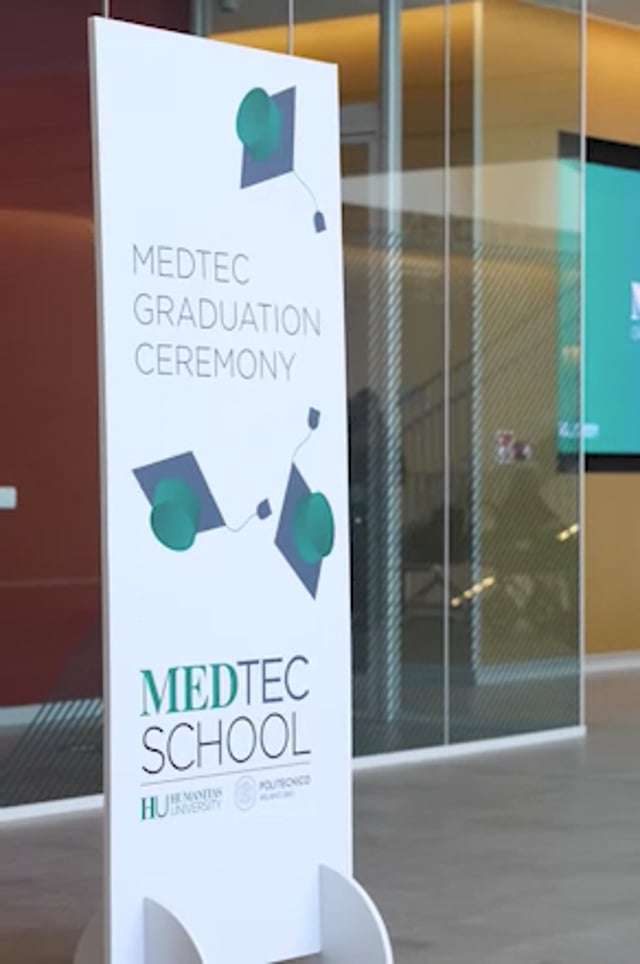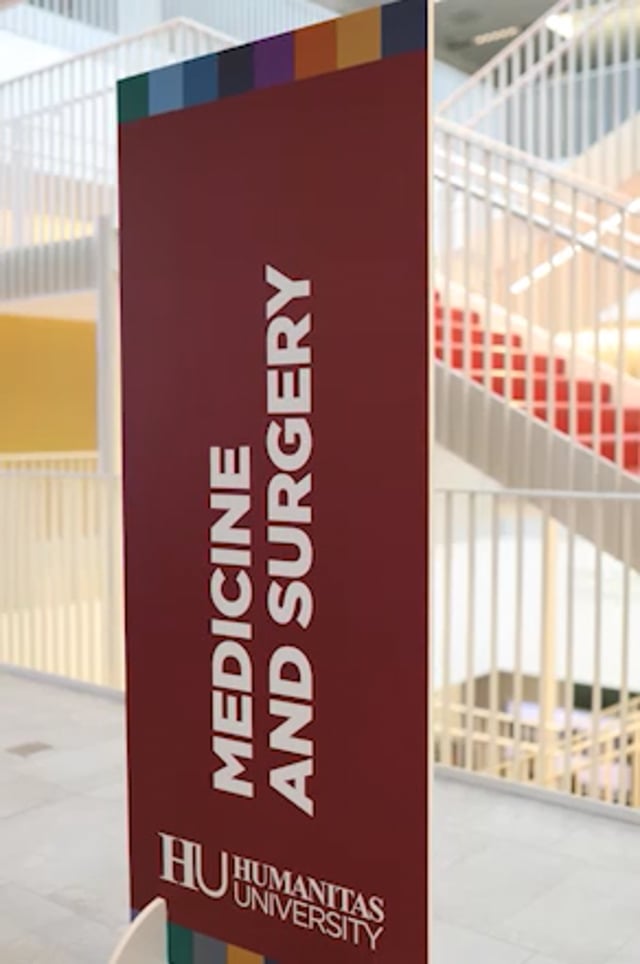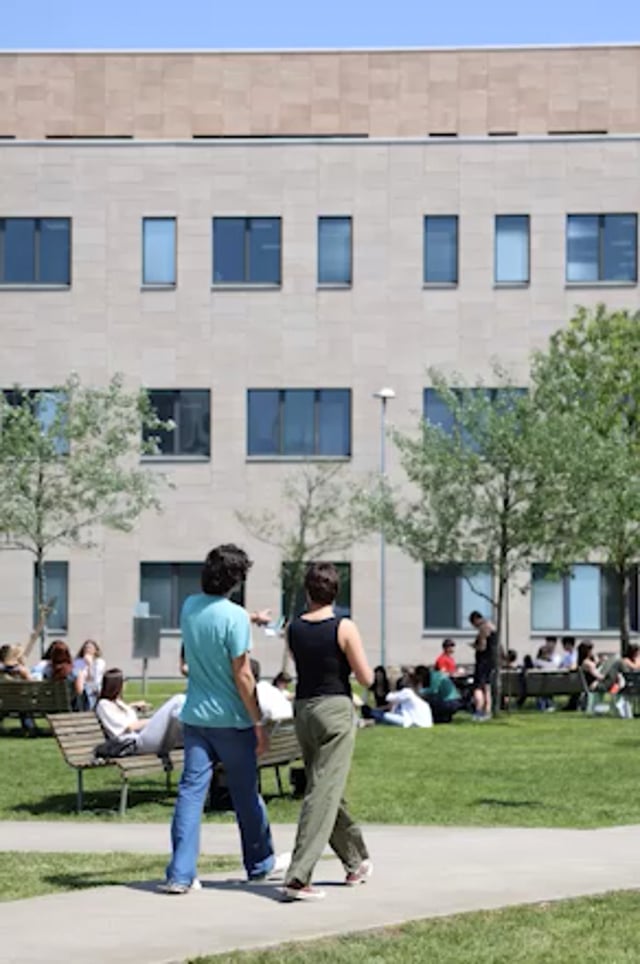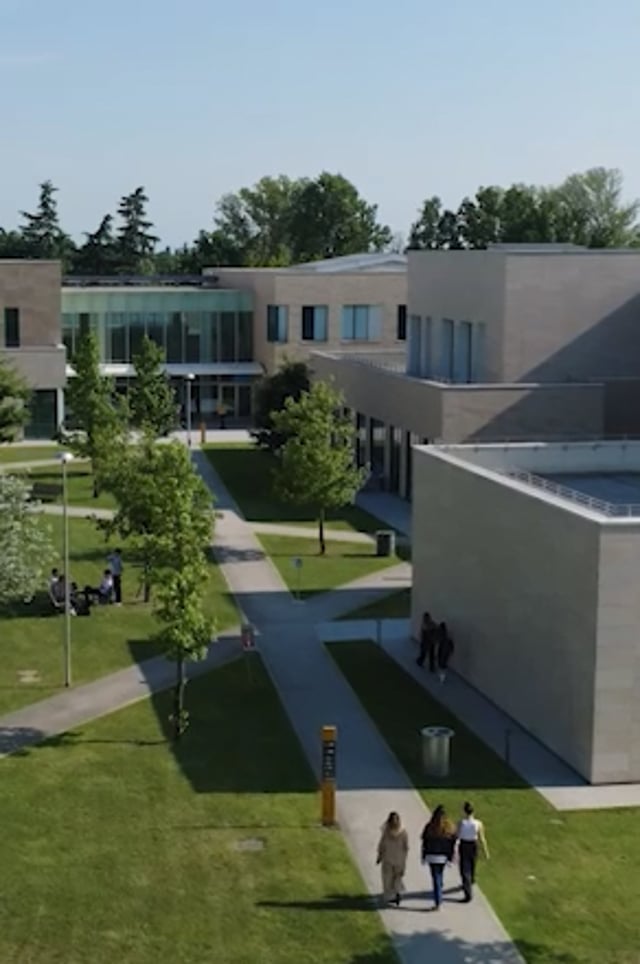Humanitas University offers 30 Specialty Schools, with an extensive network of hospitals and centers of the Humanitas Group where to spend part of the training.
The lessons are in Italian, with the possibility of conducting research and training programmes abroad, alongside practising in the state-of-the-art Hunimed’s Simulation Center and Anatomy Lab.
Humanitas University’s Medical Specialty Schools offer courses based on a multidisciplinary approach and on innovative teaching methods that allow medical residents to deepen the knowledge necessary for the medical profession. For instance, they can test medical equipments and surgical techniques in the state-of-the-art Mario Luzzatto Simulation Center, which faithfully reproduces a modern hospital and hosts high-fidelity simulators, as well as workstations equipped with augmented reality and imaging.
Congresses, seminars and contacts with international research groups allow those who wish to pursue a career in research to develop useful competencies.
Medical residents can also conduct training experiences abroad, thanks to the international partnerships established by Humanitas.
There are several courses common to all medical speciality schools that allow residents to acquire cross-disciplinary skills in several fields:
- Bioethics
- Epidemiology/Biostatistics/Medical Writing
- Doctor-Patient Relationship
- Resource and Quality Management
Admission to a Specialty School is based on a national call for applications, that includes presenting academic qualifications and passing an admission exam. For further information please visit the Italian page
Here is the full list of the 30 Specialty Schools.
| Specialty School | Length (years) | Director |
|---|---|---|
| Allergology and Clinical Immunology | 4 | Prof. Enrico Heffler |
| General Surgery | 5 | Prof. Antonino Spinelli |
| Dermatology and Venerology | 4 | Prof. Antonio Costanzo |
| Hematology | 4 | Prof. Carmelo Carlo-Stella |
| Endocrinology and Metabolic Diseases | 4 | Prof. Gherardo Mazziotti |
| Gynaecology and Obstetrics | 5 | Prof. Nicoletta De Simone |
| Hygiene and Preventive Care | 4 | Prof. Holger Schunemann |
| Cardiovascolar Diseases | 4 | Prof. Gianluigi Condorelli |
| Digestive System Diseases | 4 | Prof. Alessandro Armuzzi |
| Internal Medicine | 5 | Prof. Ana Lleo De Nalda |
| Nuclear Medicine | 4 | Prof. Willem Jozef Gerard Oyen |
| Ophthalmology | 4 | Prof. Mario Romano |
| Radiotherapy | 4 | Prof. Marta Scorsetti |
| Medical Oncology | 5 | Prof. Paolo Andrea Zucali |
| Orthopaedic Trauma | 5 | Prof. Elizaveta Kon |
| Urology | 5 | Prof. Nicolò Buffi |
| Emergency Medicine | 5 | Prof. Carlo Selmi |
| Neurosurgery | 5 | Prof. Federico Pessina |
| Nephrology | 4 | Prof. Gabriella Luisa Moroni |
| Neurology | 4 | Prof. Alfonso Fasano |
| Anesthesiology and Intensive Care | 5 | Prof. Maurizio Cecconi |
| Anatomic Pathology | 4 | Prof. Silvia Uccella |
| Otolaryngology | 4 | Prof. Fabio Ferreli |
| Radiodiagnostics | 4 | Prof. Andrea Laghi |
| Respiratory Medicine | 4 | Prof. Stefano Aliberti |
| Microbiology and Virology | 4 | Prof. Valeria Cento |
| Thoracic Surgery | 5 | Prof. Giuseppe Marulli |
| Vascular Surgery | 5 | Prof. Efrem Civilini |
Erasmus+
Erasmus+ is the EU programme that allows students to perform courses, exams, theses, research, laboratory and clinical experience in European partner universities with subsequent academic recognition of the activities in the student’s career. The main aim of the programme is to give students the opportunity to improve the knowledge of a foreign language and promote the development of the European society through studying and training in an intercultural context.
Grants
During the mobility abroad, students remain enrolled at their University and do not have to pay any tuitions or fees to the host university (except for possible secretarial costs). In order to finance the period of stay abroad within the framework of the Erasmus+ programme, the European Union assigns a study grant to each selected candidate. Although it does not cover all expenses, it can help cover additional costs such as travel expenses or living expenses in the host country.
The amount of the monthly instalment of the EU grant is established yearly by the Erasmus+ National Agency. Moreover, since Humanitas University is promoting the mobility abroad, an additional grant is offered to all students awarded by Erasmus+, so that HU doubles the amount received by students. Special contributions for disabled persons may also be assigned on ad-hoc national funds.
- Convenzione Erasmus 2022-1-IT02-KA131-HED-000055079
- Hunimed Erasmus Charter for Higher Education 2021-2027 (EN)
- Hunimed Erasmus Charter for Higher Education 2014-2020 (EN)
- Carta Erasmus Hunimed 2014-2020 (ITA)
- Hunimed Erasmus Policy Statement 2021-2027 (EN)
- Hunimed Erasmus Policy Statement 2014-2020 (EN)
- Erasmus+ Student Charter (EN)
- Carta dello Studente Erasmus+ (ITA)
ERASMUS for Training applications are reserved to residents at the Medical Specialty Schools of Humanitas University.
Applications to the Erasmus for Training SSM Call are closed



